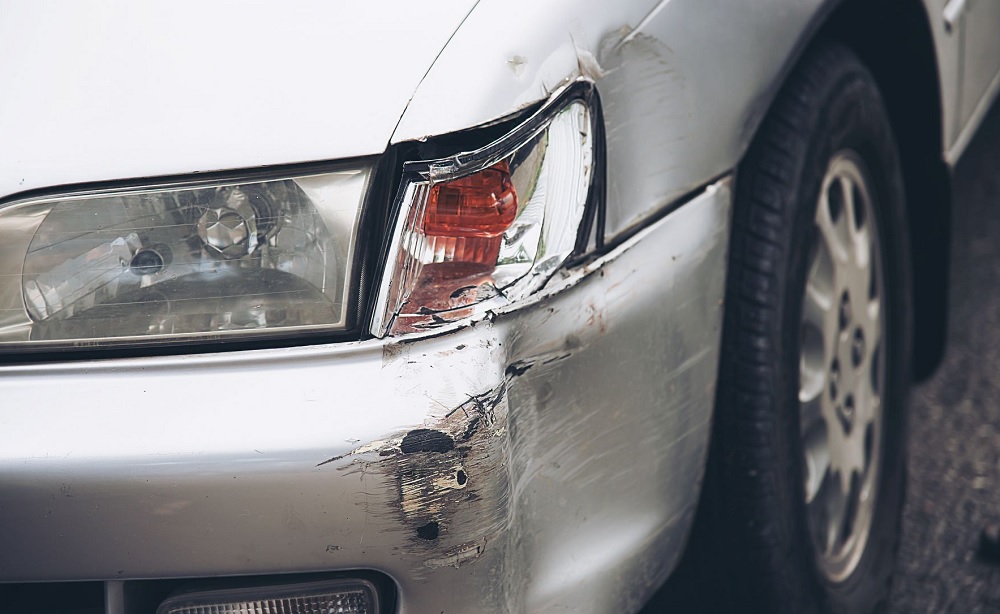In the thrilling pursuit of acquiring a new set of wheels, the last thing anyone anticipates is driving away with a lemon. Unfortunately, the world of used car sales isn’t always a smooth ride, and some dealerships might attempt to sell you a damaged vehicle. How can you protect yourself from such a predicament and ensure a seamless and gratifying car-buying experience?
Table of Contents
- Understanding the Landscape of Used Car Sales
- Spotting Red Flags: Signs of a Potentially Damaged Car
- Unraveling the Consequences: What Happens If You Buy a Damaged Car?
- Safeguarding Your Purchase: Tips for a Worry-Free Transaction
- Expert Tips: Navigating the Used Car Market Like a Pro
- 1. Do Your Research Before You Shop
- 2. Inspect, Inspect, Inspect
- 3. Check the Vehicle History Report
- 4. Look Beyond the Surface: Signs of Repairs
- 5. Know Your Lemon Laws
- 6. Negotiate Wisely
- 7. Verify Recalls and Outstanding Issues
- 8. Consider Certified Pre-Owned Programs
- 9. Trust Your Gut
- 10. Document Everything
- 11. Explore Financing Options Beforehand
- 12. Be Patient
- 13. Verify the VIN
- 14. Understand Warranty Options
- 15. Stay Informed About Market Trends
- FAQs: Unveiling the Secrets of Buying a Used Car
- 1. What Should I Look for During a Test Drive?
- 2. How Can I Verify the Vehicle’s History?
- 3. Are Certified Pre-Owned (CPO) Cars Worth the Extra Cost?
- 4. Can I Negotiate the Price of a Used Car?
- 5. What Should I Do If I Suspect Hidden Damages?
- 6. How Do Lemon Laws Protect Me?
- 7. Can I Trust Private Sellers?
- 8. Should I Purchase an Extended Warranty?
- 9. What Are Common Signs of a Flood-Damaged Car?
- 10. Is a Pre-Purchase Inspection Necessary if Buying from a Dealer?
- 11. What Documentation Should I Check Before Finalizing the Purchase?
- 12. How Can I Verify Recalls for a Specific Vehicle?
- 13. What Role Does Patience Play in the Buying Process?
- 14. How Does Financing Options Impact the Buying Experience?
- 15. Are There Advantages to Buying from Dealerships Over Private Sellers?
- Conclusion: Empowering Your Car-Buying Journey
Understanding the Landscape of Used Car Sales
The tapestry of used car sales is diverse, ranging from reputable dealerships to those with less-than-sterling reputations. Navigating this landscape requires a blend of caution, knowledge, and a keen eye for potential pitfalls.
1. Types of Sellers
Understanding who is selling the car is paramount. Reputable dealerships, private sellers, and even certified pre-owned programs each come with their own set of pros and cons. Researching and choosing the right type of seller for your needs can significantly impact the quality and reliability of your purchase.
2. Researching Dealerships
Before setting foot in a dealership, take the time to research and read reviews. Customer experiences can reveal a lot about a dealership’s practices. Websites, forums, and social media platforms can be valuable resources for uncovering both positive and negative feedback.
Spotting Red Flags: Signs of a Potentially Damaged Car
The journey to a reliable used car starts with being able to identify warning signs. Here are some key indicators that a vehicle might have a hidden history.
1. Unusual Noises and Vibrations
While on a test drive, pay close attention to the vehicle’s behavior. Unusual noises such as clunks, rattles, or persistent vibrations could be red flags indicating underlying mechanical issues.
2. Inconsistent Paint Job
A meticulous visual inspection is crucial. Mismatched paint on different parts of the car or signs of overspray might suggest the vehicle has undergone repairs due to accidents.
3. Questionable Vehicle History Reports
Requesting a vehicle history report is a standard practice when buying a used car. However, it’s essential to scrutinize the report for any red flags such as accidents, title issues, or odometer discrepancies. Inconsistencies should not be taken lightly.
4. Unexplained Odors
Strange smells inside the car, such as mold, mildew, or mustiness, could indicate water damage, a common issue in flood-damaged vehicles.
Unraveling the Consequences: What Happens If You Buy a Damaged Car?
Purchasing a damaged car can have repercussions that extend far beyond the initial excitement of acquiring a new vehicle.
1. Financial Burden
Unexpected repair costs can quickly turn your dream car into a financial nightmare. Discovering undisclosed damages post-purchase means shouldering the expense of repairs, potentially draining your budget.
2. Safety Hazards
Beyond the financial strain, a compromised vehicle poses significant safety risks. Brake failures, malfunctioning airbags, or structural integrity issues can jeopardize the well-being of you and your passengers.
3. Legal Conundrums
Dealing with the legal aftermath of buying a damaged car can be a daunting task. Understanding your rights, the lemon laws in your state, and potential recourse is vital for protecting yourself in case of a problematic purchase.
Safeguarding Your Purchase: Tips for a Worry-Free Transaction
Now that we’ve explored the potential pitfalls, let’s delve into actionable steps to safeguard your purchase and ensure a worry-free transaction.
1. Thorough Inspection
Before committing to a purchase, conduct a comprehensive inspection of the vehicle. While a visual inspection is beneficial, it’s crucial to have the car examined by a trusted mechanic. Their expertise can unveil hidden problems that may not be apparent to the untrained eye.
2. Request a Pre-Purchase Inspection (PPI)
Consider taking the extra step of investing in a professional pre-purchase inspection. While this might incur a cost, the insights gained could save you from a costly mistake. A PPI is a thorough examination by a qualified mechanic, providing you with a detailed report on the car’s condition. (See Also: How to Get Rid of Mouse Odor in Car: Effective Tips and Tricks)
3. Negotiate a Warranty
Opt for dealerships or sellers offering warranties on their used cars. A warranty not only provides peace of mind but also demonstrates the seller’s confidence in the car’s condition. Be sure to read and understand the terms of the warranty before finalizing the deal.
4. Research the Vehicle’s Value
Understanding the fair market value of the vehicle you’re interested in can be a powerful negotiating tool. Websites and tools that provide pricing information for used cars can help you determine if the asking price is reasonable.
5. Check for Recalls
Before finalizing the purchase, check for any outstanding recalls on the vehicle. The National Highway Traffic Safety Administration (NHTSA) provides a database where you can enter the vehicle identification number (VIN) to check for recalls.
6. Trust Your Instincts
In the midst of negotiations and inspections, don’t underestimate the power of your instincts. If something feels off or if the seller is unwilling to provide necessary information, it’s okay to walk away. A rushed decision can lead to regrets down the road.
When it comes to buying a used car, knowledge is your best ally. Arm yourself with expert tips to navigate the intricate landscape of the used car market, ensuring a purchase that aligns with your expectations and avoids potential pitfalls.
1. Do Your Research Before You Shop
Knowledge is power, especially in the used car market. Research the make and model you’re interested in, familiarize yourself with common issues, and understand the fair market value. This information will empower you during negotiations and help you spot a good deal from a mile away.
2. Inspect, Inspect, Inspect
Never underestimate the importance of a thorough inspection. Beyond the standard visual check, enlist a trusted mechanic for a comprehensive pre-purchase inspection. Their expertise can uncover hidden issues, giving you a clear picture of the car’s condition.
3. Check the Vehicle History Report
Requesting a vehicle history report is a non-negotiable step in the buying process. It provides valuable insights into the car’s past, including accidents, title issues, and odometer discrepancies. Be wary of sellers reluctant to provide this crucial document.
4. Look Beyond the Surface: Signs of Repairs
A shiny exterior doesn’t always tell the full story. Look for signs of repainting, uneven gaps between body panels, or variations in paint color. These could be indicators of past accidents and repairs.
5. Know Your Lemon Laws
Understanding the lemon laws in your state is essential. These laws vary, but they generally protect consumers from purchasing a defective vehicle. Familiarize yourself with your rights, ensuring you have legal recourse if you unknowingly buy a damaged car.
6. Negotiate Wisely
Don’t be afraid to negotiate the price. Armed with your research, inspection results, and knowledge of the vehicle’s value, you’re in a strong position to secure a fair deal. Be patient, and don’t hesitate to walk away if the terms don’t align with your expectations.
7. Verify Recalls and Outstanding Issues
Check for recalls associated with the make and model you’re interested in. This information is readily available through the National Highway Traffic Safety Administration (NHTSA). Addressing recalls before purchase ensures you’re not inheriting unresolved issues.
8. Consider Certified Pre-Owned Programs
Opting for a certified pre-owned (CPO) vehicle provides an extra layer of assurance. These cars undergo rigorous inspections, come with extended warranties, and often include additional perks. While they may be slightly more expensive, the peace of mind can be worth the investment.
9. Trust Your Gut
Intuition plays a significant role in the car-buying process. If something feels off, whether it’s during negotiations or the test drive, trust your instincts. A comfortable and confident buyer is more likely to make informed decisions. (See Also: Can You Wax Over Plasti Dip? Tips and Tricks for a Flawless Finish)
10. Document Everything
Keep meticulous records of your communication with the seller, the vehicle’s inspection report, and any agreements made during the transaction. Having a paper trail can be invaluable if issues arise post-purchase.
11. Explore Financing Options Beforehand
Secure financing options before you start shopping. Knowing your budget and having pre-approved financing in place streamlines the buying process and strengthens your negotiating position.
12. Be Patient
Rushing into a purchase is a recipe for regrets. Take your time, explore multiple options, and don’t settle for a deal that doesn’t meet your criteria. Patience is key to finding the right car at the right price.
13. Verify the VIN
Confirm the Vehicle Identification Number (VIN) on the car matches the one on the title and documents. Discrepancies can be red flags for potential issues or even fraud.
14. Understand Warranty Options
Whether buying from a dealership or a private seller, inquire about warranty options. A warranty can provide added protection against unforeseen issues, giving you peace of mind.
15. Stay Informed About Market Trends
Keep abreast of market trends, especially for the specific make and model you’re interested in. Knowing whether prices are currently high or low can influence your negotiation strategy.
Armed with these expert tips, you’re well-equipped to navigate the used car market with confidence. Remember, a well-informed buyer is a savvy buyer, ensuring your car-buying journey is not just exciting but also rewarding. Happy hunting!
FAQs: Unveiling the Secrets of Buying a Used Car
Embarking on the journey of buying a used car can be both exciting and daunting. To demystify the process and address common concerns, we’ve compiled a set of frequently asked questions (FAQs) along with expert answers. Let’s unravel the secrets of making a smart and informed used car purchase.
1. What Should I Look for During a Test Drive?
A thorough test drive is essential. Listen for unusual noises, feel for vibrations, assess the brakes, and pay attention to the transmission’s responsiveness. Take the time to test all features, ensuring everything functions as expected.
2. How Can I Verify the Vehicle’s History?
Request a comprehensive vehicle history report. This document reveals vital information, including accidents, title issues, odometer discrepancies, and more. A transparent seller should willingly provide this report.
3. Are Certified Pre-Owned (CPO) Cars Worth the Extra Cost?
Certified pre-owned cars undergo rigorous inspections, come with extended warranties, and often include additional benefits. While they may be pricier than non-certified options, the added assurance and peace of mind can make the extra cost worthwhile.
4. Can I Negotiate the Price of a Used Car?
Absolutely. Armed with research on the fair market value, inspection results, and the vehicle’s history, you’re in a strong position to negotiate. Be patient, firm, and prepared to walk away if the terms don’t align with your expectations.
5. What Should I Do If I Suspect Hidden Damages?
If you suspect hidden damages, consider getting a professional pre-purchase inspection. A qualified mechanic can uncover issues not visible during a standard visual check, helping you make an informed decision.
6. How Do Lemon Laws Protect Me?
Lemon laws vary by state, but generally, they protect consumers from purchasing defective vehicles. Familiarize yourself with your state’s specific laws, ensuring you know your rights in case of a problematic purchase.
7. Can I Trust Private Sellers?
While many private sellers are honest, it’s crucial to exercise caution. Request a thorough inspection, a vehicle history report, and be wary of any reluctance to provide documentation. Trust your instincts, and if something feels off, proceed with caution. (See Also: Can a Dealer Sell a Car with Structural Damage? Unveiling the Truth)
8. Should I Purchase an Extended Warranty?
The decision to purchase an extended warranty depends on various factors, including the vehicle’s age, mileage, and your risk tolerance. Evaluate the coverage offered and consider your long-term plans for the car before deciding.
9. What Are Common Signs of a Flood-Damaged Car?
Flood damage can have long-lasting effects. Look for signs such as a musty odor, water stains, or signs of rust in unusual places. Additionally, check the vehicle history report for any indication of flood damage.
10. Is a Pre-Purchase Inspection Necessary if Buying from a Dealer?
Yes, a pre-purchase inspection is advisable even when buying from a reputable dealer. While dealers may perform their own inspections, an independent assessment by a trusted mechanic adds an extra layer of assurance.
11. What Documentation Should I Check Before Finalizing the Purchase?
Before finalizing the purchase, check essential documents such as the title, registration, and any warranty information. Verify that the Vehicle Identification Number (VIN) matches across all documents.
12. How Can I Verify Recalls for a Specific Vehicle?
Check for recalls using the National Highway Traffic Safety Administration (NHTSA) database. Enter the VIN to see if there are any outstanding recalls that need to be addressed before finalizing the purchase.
13. What Role Does Patience Play in the Buying Process?
Patience is a virtue in the used car buying process. Rushing into a purchase can lead to regrets. Take your time to research, inspect, and negotiate, ensuring you find the right car at the right price.
14. How Does Financing Options Impact the Buying Experience?
Securing financing options before shopping provides a clear budget and strengthens your negotiating position. Explore different financing options to find the one that best suits your needs and financial situation.
15. Are There Advantages to Buying from Dealerships Over Private Sellers?
Dealerships often offer a wider selection, financing options, and certified pre-owned programs. While private sellers may offer lower prices, dealerships provide additional services and safeguards, making them a preferred choice for many buyers.
Armed with these FAQs and expert answers, you’re better equipped to navigate the intricacies of buying a used car. Remember, a well-informed buyer makes confident decisions, ensuring a rewarding and satisfying car-buying experience. Happy driving!
Conclusion: Empowering Your Car-Buying Journey
In conclusion, the road to a reliable and satisfying used car purchase requires diligence, knowledge, and a healthy dose of skepticism. Arm yourself with information, remain vigilant throughout the buying process, and trust your instincts. By doing so, you’ll significantly reduce the likelihood of falling victim to a dealer selling you a damaged car.
Remember, the excitement of a new car should be complemented by the assurance that your investment is sound. The journey begins with awareness and ends with the keys to a car that not only looks good on the outside but runs smoothly beneath the surface. Here’s to happy and worry-free driving!


